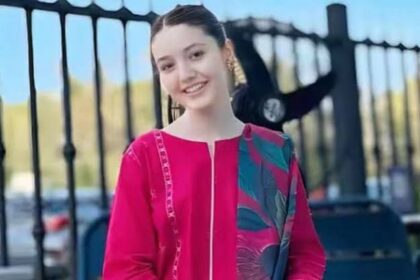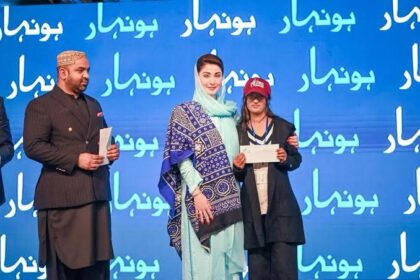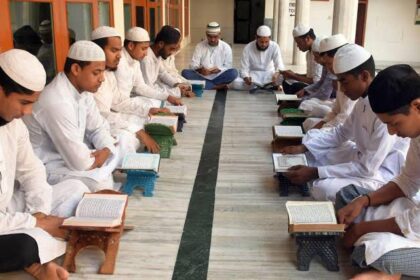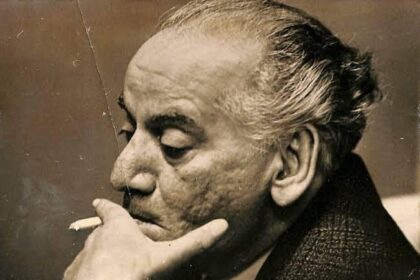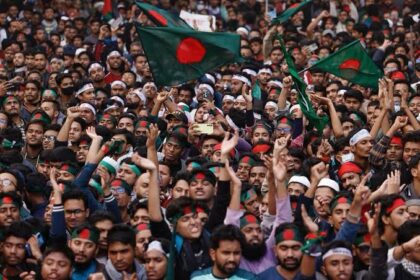(This article may contain spoilers)
“A mob doesn’t need evidence, it only needs an indication.”
These words are spoken by Kami as he leads a mob.
Sultana Siddiqui, celebrating 50 years of her work, introduced three signature projects. The first drama in this trilogy was Mann Jogi, written by Zafar Mairaj and directed by Kashif Nisar. It was followed by Nadaan, written by Saji Gul and directed by Mehreen Jabbar. The third and final drama was Tan Man Neel-o-Neel, directed and written by the dynamic duo Saife Hassan and Mustafa Afridi, previously known for their work on Sang-e-Mah and Zard Patton Ka Bunn.
All three dramas were exceptional in their own right, each encapsulating the idea of mob mentality in one way or another. However, Tan Man Neel-o-Neel was arguably the most impactful of the three.
The Story
The drama follows a young girl, Raabia Irum (played by Sehar Khan), better known as Rabi, who dreams of making it big through social media. She meets a young boy, Salman, known as Sonu (played by Shuja Asad), an aspiring dancer and a member of the Danger Dance Group. He is gentle yet upfront—qualities that contrast with Rabi’s father, making Sonu even more appealing to her.
Rabi’s father, Ehsaan (played by Nauman Masood), is a quiet man whose silence stems from guilt, which manifests as neglect toward his daughter and wife, Mehnaaz (played by Nadia Afghan). This guilt is a result of the murder of Sonu’s father, Shoukat, the husband of Farah (played by Samiya Mumtaz), whom Ehsaan deeply loved in his youth. Farah, a dancer, refused to leave her profession, which led to their separation. In a fit of rage instigated by his wounded ego, Ehsaan crashed his car into a clueless Shoukat, who was riding a bicycle.
Rabi’s cousin, Kami (played by Usman Javed), works as a paid agitator, leading mobs and switching sides as per his convenience. One day, he is protesting in favor of Qaiser (played by Saleem Mairaj), a local politician who sexually assaults Sonu’s friend, Moon (played by Ali Ammar), and the next day, he is protesting against him.
We see these characters fight for themselves—Moon gathering the courage to seek justice and Rabi standing up to her overbearing cousin by rejecting his marriage proposal. Over 11 weeks, we become invested in their dreams and aspirations. But in just a few minutes, everything comes crashing down.
The Climax
On the day of the first event managed by Rabi, Sonu, and Moon under their new event management venture, Sonu and Moon perform a dance. Suddenly, the music stops. A video plays on the screen showing Sonu dancing while Rabi sings, with pillars and domes visible in the background. The crowd cheers—until Kami steps onto a table, delivers a speech, and accuses Sonu of blasphemy. The mob erupts into chaos.
The building where Sonu was dancing was not a sacred place at all, it was an old house belonging to a Sikh family.
The Impact
Rabi, Sonu, and Moon run for their lives as the mob, armed with hammers, rods, and sticks, chases them down street after street.
Amid haunting visuals of fiction, real-life victims are shown—Mashal Khan, Mughees and Muneeb, Priyantha Kumara, burned churches, and women targeted by men who cannot even read the book they claim to defend. Hassan Badshah’s voice echoes through the chaos:
ہم خود ہی اپنے قاتل
ہم خود ہی اپنے دشمن
ہم خود ہی آگ کے شعلے
اور زد میں اپنا آنگن
A total of five people are lynched. Rabi’s father is crushed while trying to hold back the mob. Moon falls next, followed by Sonu and Rabi. Kami watches as his own father is killed by the very mob he incited.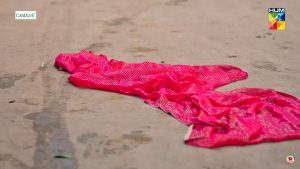
A Painful Reality
Tan Man Neel-o-Neel is a brilliantly written and executed masterpiece. It is a painfully realistic portrayal of mob violence and religious manipulation, forcing us to confront uncomfortable truths we often ignore. Creating a drama that highlights such a rampant issue while ensuring it does not offend anyone is a testament to the sincerity of its makers and the powerful performances of its actors. It is also a bold step toward changing the trajectory of storytelling in the industry.
For me, this show has left a lasting impact. It was a story of tragedies—where fiction mirrored reality. Throughout the series, we are reminded of real victims, whether through the reference to Priyantha Kumara in the newspaper Kami’s father (played by Tanveer Hussain) reads or Farah’s mention of Shoukat’s crushed fingers, paralleling Mashal Khan’s mother’s heartbreaking revelation about her son’s broken fingers and knuckles.
To the world, these are just statistics—
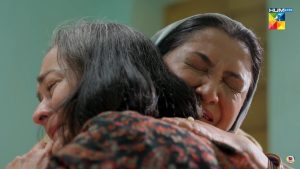
“Five dead. Seven accused. Ten-year imprisonment.”
What remained of Rabi was her pink dupatta, lifeless on the ground—the same one she wore when she first met Sonu.
Tan Man Neel-o-Neel serves as a harrowing reminder that the victims of mob violence are not just numbers. They are people like Rabi, Sonu, and Moon. They are people like you.






